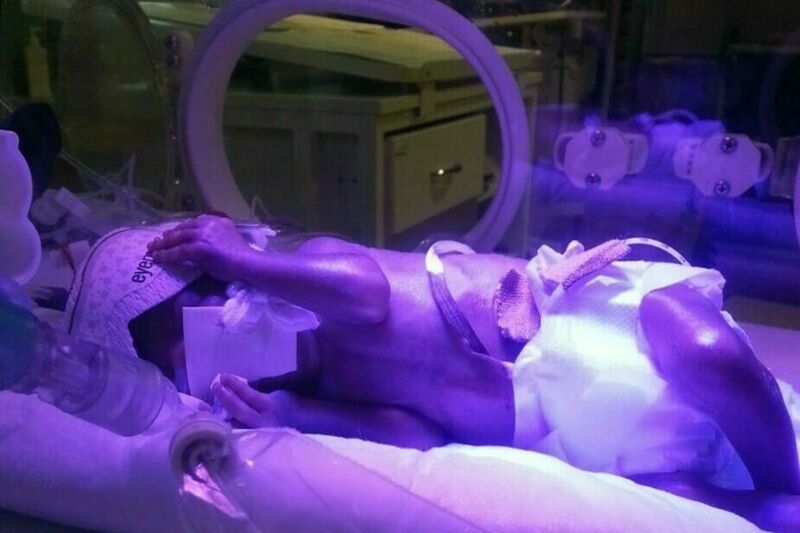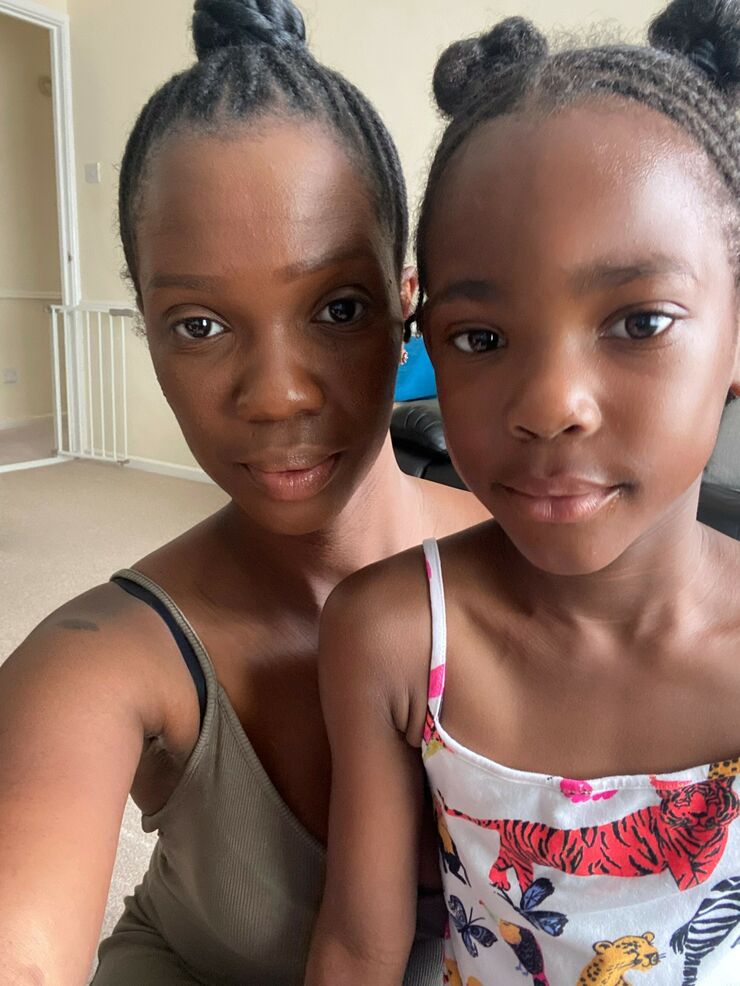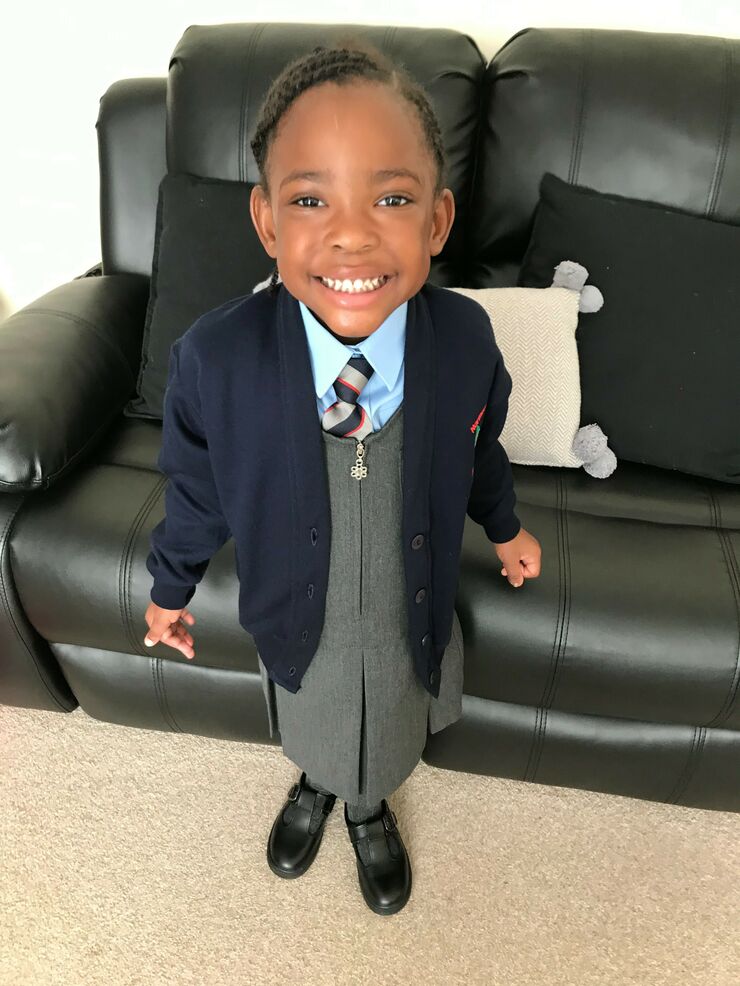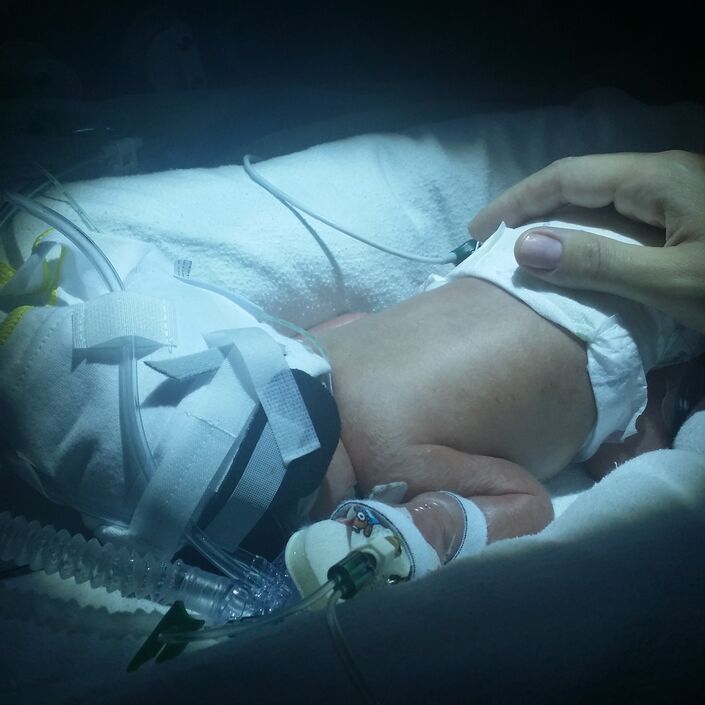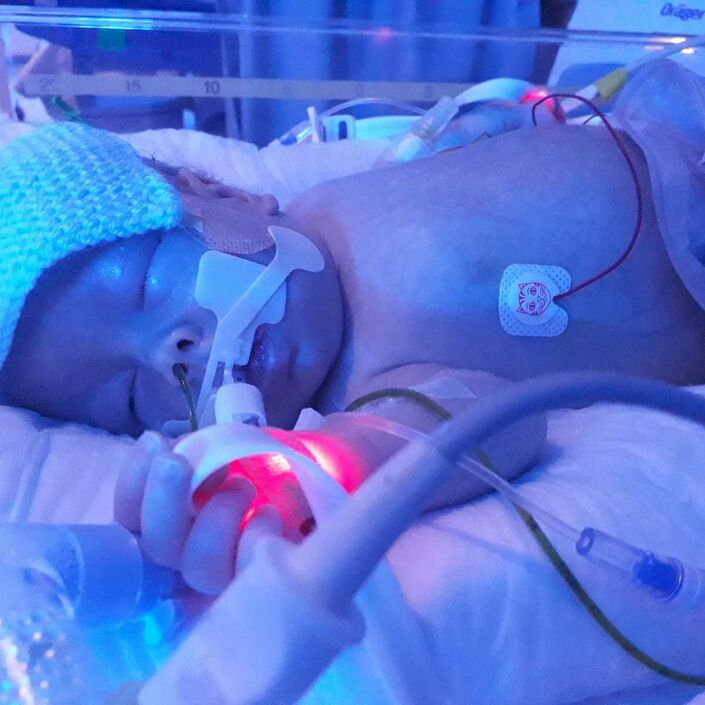Naiyana was born on the 13 November 2014, weighing 1lb 8oz. Following an emergency caesarean section at New Cross Hospital, Naiyana was rushed straight to the NICU.
It was hours later until I was able to go and see her.
As she was born at 25 weeks, I expected her to be small, yet I still felt shocked by her size. Her Dad described it best – she was a “tiny baby bird”. At this early stage I could not picture her as a full-term baby, and soon realised that I had to take things one day at a time.
I couldn’t take Naiyana home for five months so visiting the NICU became my obsession. I wanted to be as involved in her care as I could possibly be. I became numb to the once overwhelming sounds of bleeping coming from the machines and developed confidence in putting a nappy on her tiny frame, navigating the small openings in the incubator. This newfound skill was later tested when Naiyana had a stoma.
Yes, alongside breathing support, (from ventilator to CPAP and back again) multiple scans and blood tests, Naiyana developed Necrotising Enterocolitis (NEC).
I remember receiving a call just hours after I had left the unit – Naiyana had deteriorated and needed to be transferred to another hospital for emergency surgery on her bowel. Doctors and nurses spent hours trying to find a bed space for her. I remember a couple avoiding eye contact as they visited their baby, and I wondered if it was because they could sense the seriousness of the situation. Privacy is minimal on the NICU as staff need to be able to see the monitors at all times. Over time I became used to this by blocking everything out and focusing solely on Naiyana.
The emergency transfer is one of my most vivid memories of the NICU experience. Naiyana was blue lighted to Chelsea and Westminster Hospital, 138 miles away, while her Dad and I followed via train. As Naiyana reached the hospital before us, the surgeon called me whilst on the train to obtain consent, enabling them to proceed without us. On arrival we were advised that Naiyana had a 50/50 chance of survival, depending on how damaged her bowels were.
Exhausted by the day’s events and the train journey, the next thing I remember is waking up to a surgeon knocking on our room door. The surgery had been successful - just over 40cm’s of Naiyana’s bowel had been removed and a stoma had formed.
I have worked in healthcare for over ten years so understood the requirements of stoma care. What I didn’t consider was how Naiyana’s dad was coping with it all, and only in later conversations did he admit to struggling at this stage. Whilst I felt comfortable changing Naiyana’s stoma bag, her dad held back. I received regular support from a stoma care nurse, who encouraged me to speak to the parents of a baby due to have the same operation. I felt that it was the least I could do after all she had done for me.
Naiyana had a reversal of her stoma a month later at Birmingham Children’s Hospital and recovered well. We realised how resilient our little daughter was, despite how nerve-wracking it was for us as parents.
Over a total of five months Naiyana had three operations, went from a ventilator to CPAP, oxygen and then no breathing support. She had an NG feed and night pump to help her thrive before advancing to Pepti Junior via bottle, with the support of an amazing dietitian.
